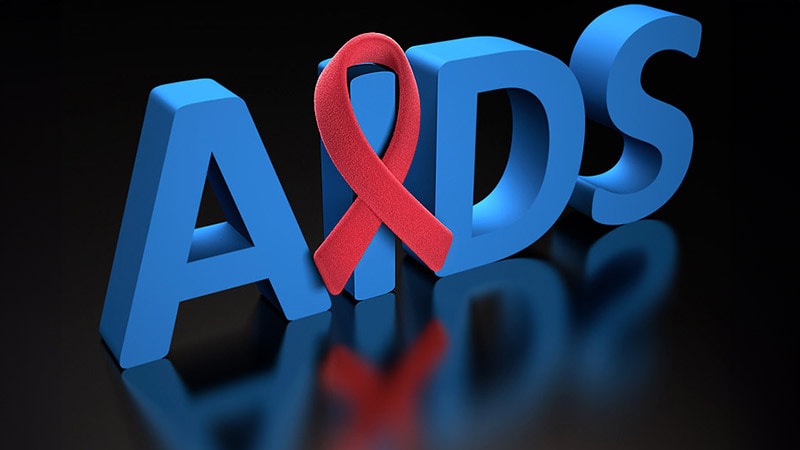Is It Time to Stop Using the Term AIDS?
Is It Time to Stop Using the Term AIDS? Medscape



The Need to Replace the Term AIDS with “Advanced HIV”
A group of specialists is advocating for the replacement of the term AIDS with “advanced HIV,” as they believe that the acronym AIDS is redundant, stigmatizing, and potentially harmful. In an article published in The Lancet HIV, Dr. Isaac Núñez and colleagues argue that the term AIDS no longer aligns with contemporary challenges in HIV and can lead to mischaracterizations and misconceptions.
Implications of the Term AIDS
The authors highlight that the term AIDS is commonly associated with patients who have no available treatment options and a short life expectancy. This mischaracterization can influence treatment decisions made by both patients and clinicians and may result in exaggerated infection-control measures. By replacing the term with “advanced HIV,” clinicians can focus on important factors such as treatment history and determine appropriate care accordingly.
Original Reason for the Term
The term AIDS, which stands for acquired immunodeficiency syndrome, was coined in 1982 by the US Centers for Disease Control and Prevention (CDC) to describe a disease with an unknown cause that affected individuals with weakened cell-mediated immunity. However, since the discovery of HIV as the cause of the disease in 1986, the term AIDS has become unnecessary. It was originally intended as a case definition for surveillance purposes, and treatment decisions were based on whether patients met the case definition for AIDS.
Organizations Removing AIDS from Their Names
Several organizations have already removed AIDS from their names to reflect the changing landscape of HIV. For example, the International AIDS Society–USA changed its name to the International Antiviral Society–USA. Additionally, AIDS.gov changed its name to HIV.gov in 2017 to emphasize that early diagnosis and treatment can prevent HIV infection from progressing to AIDS.
Alternative Perspectives
While some support the replacement of the term AIDS, others argue that it is not the most pressing issue in the fight against HIV. Greg Millett, vice president at the Foundation for AIDS Research (amfAR), believes that focusing on social determinants of health is more important than changing nomenclature. He draws a parallel with debates over terms like Black and African American, highlighting that a change in terminology does not address underlying issues such as poverty and structural racism.
The Importance of Maintaining the Term AIDS
James W. Curran, dean emeritus of the Rollins School of Public Health, disagrees with replacing the term AIDS. He argues that the term is widely recognized and has been in use for 40 years. Curran also expresses concern that eliminating the term may lead to confusion and create the perception that the HIV epidemic is over, potentially undermining global programs like PEPFAR.
SDGs, Targets, and Indicators Analysis
1. Which SDGs are addressed or connected to the issues highlighted in the article?
- SDG 3: Good Health and Well-being
- SDG 10: Reduced Inequalities
The article discusses the need for a change in terminology related to HIV/AIDS, which is directly connected to SDG 3, which aims to ensure healthy lives and promote well-being for all at all ages. Additionally, the article mentions the stigma and persecution faced by people living with HIV/AIDS, highlighting the issue of reduced inequalities (SDG 10).
2. What specific targets under those SDGs can be identified based on the article’s content?
- SDG 3.3: By 2030, end the epidemics of AIDS, tuberculosis, malaria, and neglected tropical diseases and combat hepatitis, water-borne diseases, and other communicable diseases.
- SDG 10.3: Ensure equal opportunity and reduce inequalities of outcome, including by eliminating discriminatory laws, policies, and practices and promoting appropriate legislation, policies, and action in this regard.
The article indirectly addresses SDG 3.3 by discussing the need to update terminology related to HIV/AIDS to better align with contemporary challenges. It also touches on SDG 10.3 by highlighting the stigma and discrimination faced by people living with HIV/AIDS.
3. Are there any indicators mentioned or implied in the article that can be used to measure progress towards the identified targets?
- Indicator for SDG 3.3: Number of new HIV infections per 1,000 population.
- Indicator for SDG 10.3: Proportion of people living with HIV/AIDS who experience stigma and discrimination.
The article does not explicitly mention any indicators, but these indicators can be used to measure progress towards the identified targets. The number of new HIV infections per 1,000 population can indicate progress in ending the AIDS epidemic (SDG 3.3), while the proportion of people living with HIV/AIDS who experience stigma and discrimination can measure progress in reducing inequalities (SDG 10.3).
Table: SDGs, Targets, and Indicators
| SDGs | Targets | Indicators |
|---|---|---|
| SDG 3: Good Health and Well-being | 3.3: By 2030, end the epidemics of AIDS, tuberculosis, malaria, and neglected tropical diseases and combat hepatitis, water-borne diseases, and other communicable diseases. | Number of new HIV infections per 1,000 population. |
| SDG 10: Reduced Inequalities | 10.3: Ensure equal opportunity and reduce inequalities of outcome, including by eliminating discriminatory laws, policies, and practices and promoting appropriate legislation, policies, and action in this regard. | Proportion of people living with HIV/AIDS who experience stigma and discrimination. |
Behold! This splendid article springs forth from the wellspring of knowledge, shaped by a wondrous proprietary AI technology that delved into a vast ocean of data, illuminating the path towards the Sustainable Development Goals. Remember that all rights are reserved by SDG Investors LLC, empowering us to champion progress together.
Source: medscape.com

Join us, as fellow seekers of change, on a transformative journey at https://sdgtalks.ai/welcome, where you can become a member and actively contribute to shaping a brighter future.







